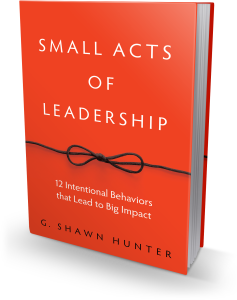Your Focus Needs More Focus
You are trying to finish a project. It requires time and care. It requires focus and attention. It requires formatting slides, or writing a proposal, or completing a spreadsheet. It’s important. And if everyone would just pipe down, you could get it done.
But now the people meeting in the conference room next door are loud and obnoxious. It sounds like they are having a party, not a meeting. What do you do?
You could focus on how obnoxious they are, how disruptive they are. But now you’re annoyed and focusing on the loud meeting. And because you’re annoyed, you can’t stop thinking about how annoyed you are, and suddenly your feelings are even louder than the meeting.
Another option is you could shut it out, try to ignore it, and focus on your work. Essentially respond by thinking, “Yes, they are loud, but I need to finish this project. I can’t control them, so I’m going to ignore them.”
It’s a common scenario at work. Distractions abound, alerts sound off, emails stack up, your boyfriend just texted you, while you are in a meeting. Now, just when you have a quiet minute to THINK, your own mind hijacks your focused work. Suddenly in this precious moment, your mind is drifting off to some other distraction.
Studies show that how we deal with distraction matters a great deal. In one study from the University of Amsterdam, participants were given a task to solve anagrams, puzzles that require focus and careful thought. All of the participants were asked to wear headphones which played cacophonous background animal noises such as bears snorting, birds chirping, horses whinnying, etc. – pretty obnoxious and distracting stuff.
Half of the participants were told, “to do well on the task, you will need to overcome the distraction and oppose its interference.” The other half of the participants were told, “the background noise is a bit of a nuisance to cope with. It is something that may cause you to feel a bit unpleasant—a feeling that you’ll need to cope with.” All participants were told that if they did a good job on the test, they would receive a prize.
Both groups described the noise as equally annoying, but here’s the surprise: while both groups performed comparably on the test (the oppose-the-distraction group did a little better than the cope-with-the distraction group, but not much), the group asked to oppose the distraction and block it out cared much more about the task, and valued the reward at the end much more.
Don’t cope with distraction, oppose it. When we concentrate and work in a deeply focused way, we care about our work more, and we value the impact and benefits that come from it. In short, when we deepen our focus and consciously shut out distractions, we wind up valuing our work more.
Your focus needs more focus.
– Mr. Han
Need a dose of resiliency? Have a look at our new micro-learning series Raising Resiliency featuring bestselling author Jen Shirkani. Message me if you’re interested and we’ll send you a preview. Enjoy!
- ____________________________________________________

Twitter: @gshunter
Say hello: email@gshunter.com
Web: www.shawnhunter.com



